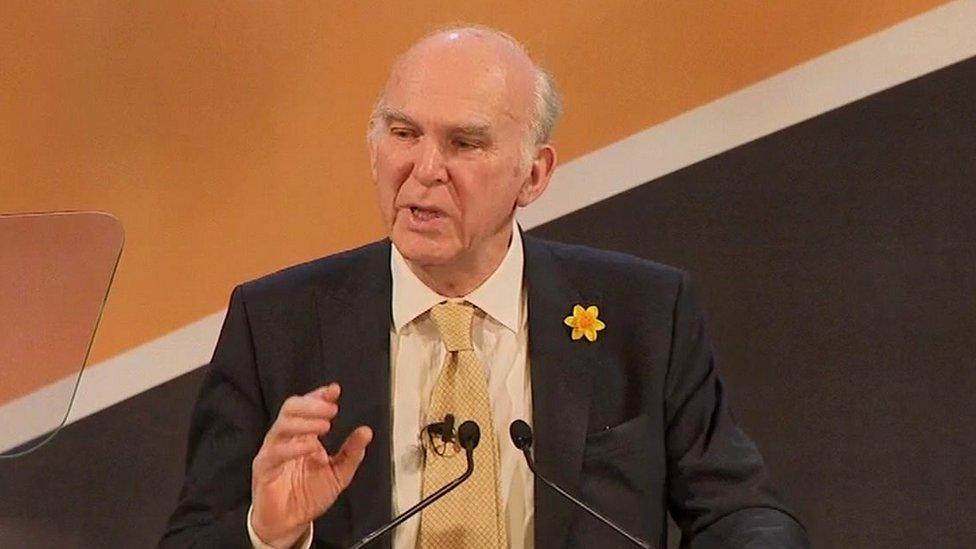Sir Vince Cable: Governments assume public are 'pretty bigoted'
- Published
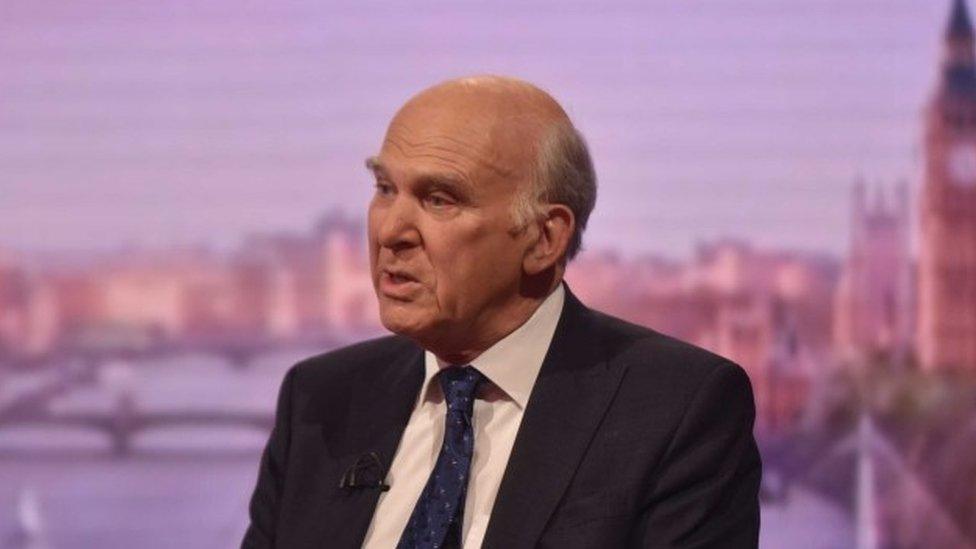
UK governments have long assumed the public are "pretty bigoted" and need to be given "red meat" on immigration, Lib Dem leader Sir Vince Cable has said.
He claimed the Lib Dems had fought this tendency when they were in coalition with the Conservatives.
The "hostile environment" for illegal migrants that critics say led to the Windrush scandal was created by the coalition.
But Sir Vince claimed he had tried to block some of the measures in it.
"There are a whole lot of very powerful measures that Theresa May was pushing at the time - things like making landlords responsible for immigration control. We stopped that. We simply had pilot studies," he told the BBC's Andrew Marr Show.
"Once the Lib Dems were out of the coalition they just introduced the policy in a very aggressive way."
In a 2014 speech, external, the then Lib Dem leader and deputy prime minister Nick Clegg highlighted moves to to make life more difficult for those in the UK without permission and said "more needs to be done" to "bear down" on illegal immigration.
Sir Vince told Andrew Marr "all parties have got some responsibility" for the Windrush scandal.
The former business secretary, who has not joined Labour, SNP and Green calls for Home Secretary Amber Rudd to quit over her handling of the crisis, said: " I don't believe in lynch mobs".
He urged people to "wait and see" what Ms Rudd, who shared a platform with him at a Remain campaign event during the 2016 EU referendum, had to say in a Commons statement on Monday.
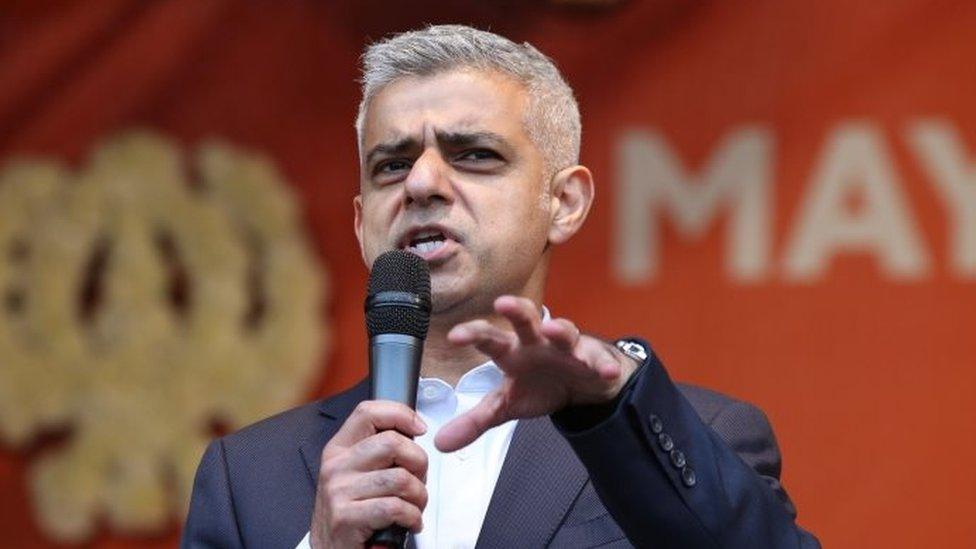
Sadiq Khan: Most organisations have problem with 'institutional racism'
On immigration crackdowns, he said: "It goes back to New Labour. I think the working assumption successive governments have made is that the public out there are pretty bigoted and they have got be given red meat in the form of these very restrictive measures and it has done a lot of harm," said Sir Vince.
"I think the interesting thing about Windrush is that perhaps for the first time the public opinion has been ahead of the politicians in seeing that there is a terrible injustice here and it should not be allowed to pass."
Sir Vince came under fire earlier this year for a speech in which he said many older voters backed Brexit out of nostalgia for a world where "passports were blue, faces were white and the map was coloured imperial pink".
"The ugly truth is that race has been a key factor in British politics. I was simply making that quite explicit," he told Marr.
Many British citizens who arrived in the country from Commonwealth nations decades ago have been targeted as part of a drive to remove illegal immigrants and block access to jobs, benefits and medical treatment.
The government has apologised to the so-called Windrush generation - named after the ship that brought the first Caribbean migrants to the UK in 1948 - and set up a task force to help them formalise their right to remain.
London's Labour Mayor Sadiq Khan has, meanwhile, claimed most organisations in Britain have problems with "institutional racism" and "unwitting prejudice" including the main political parties, the police and "other public authorities".
"The key thing is the leadership at the top must make sure there is a zero tolerance towards this, we have policies in place and an action plan to address that.
"I think we've been too slow and we're going to accelerate the progress."
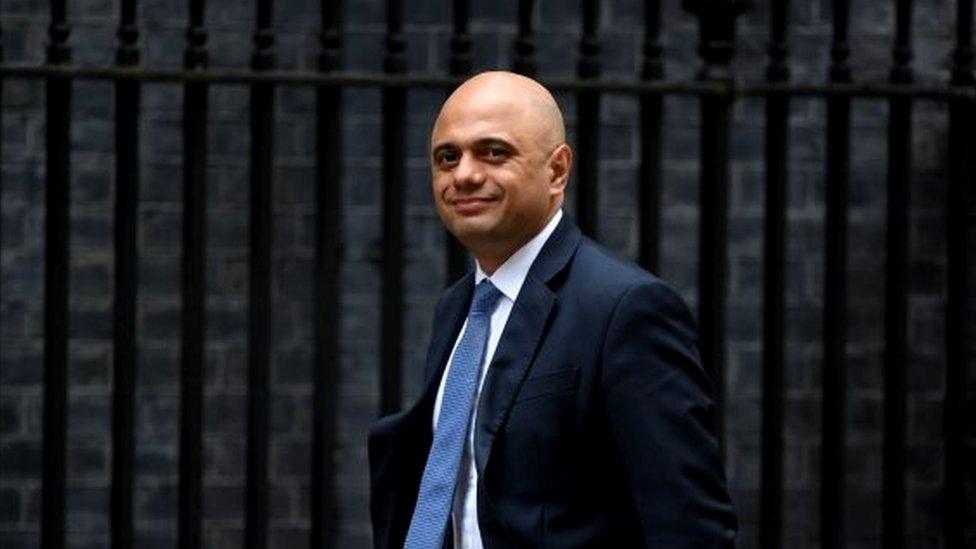
Sajid Javid: Windrush could have affected my family
In a separate development, Communities Secretary Sajid Javid urged ethnic minority voters to look beyond the government's treatment of Caribbean migrants from the "Windrush generation," in Thursday's local elections.
Mr Javid, whose parents emigrated from Pakistan in the 1960s, said his first reaction when he heard people were being wrongly threatened with deportation was that it could have been his family.
But in an interview with The Sunday Telegraph, external he said the government was would "put things right" and he urged ethnic minority voters to look at the "bigger picture" when it came to Thursday's vote.
Labour's Andrew Gwynne was quizzed by Andrew Marr about whether his party would lose votes on Thursday over allegations of anti-Semitism in its ranks.
He said: "I hope not".
"We are determined not just to call out anti-Semitism, but to root out anti-Semitism," said the shadow communities secretary.
"It has no place in the Labour Party."
- Published29 April 2018
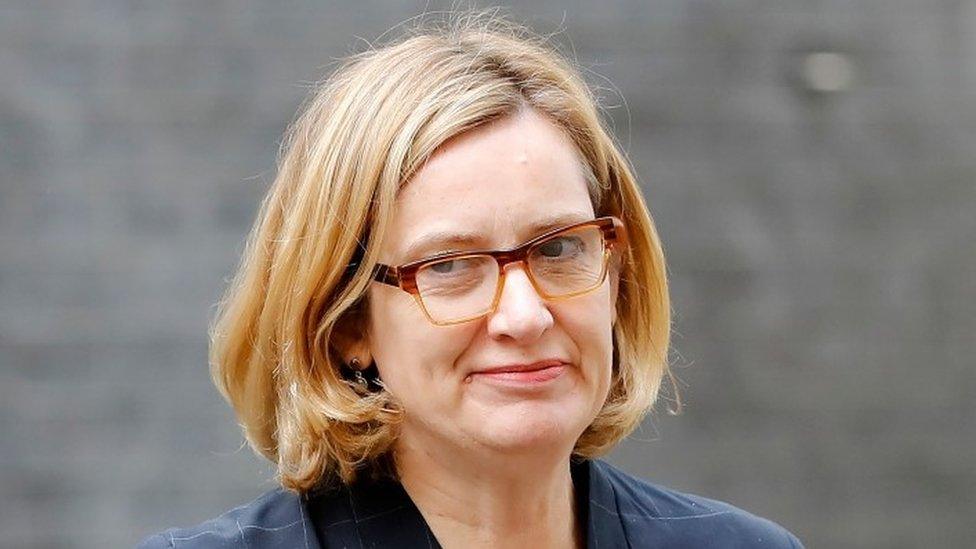
- Published28 April 2018
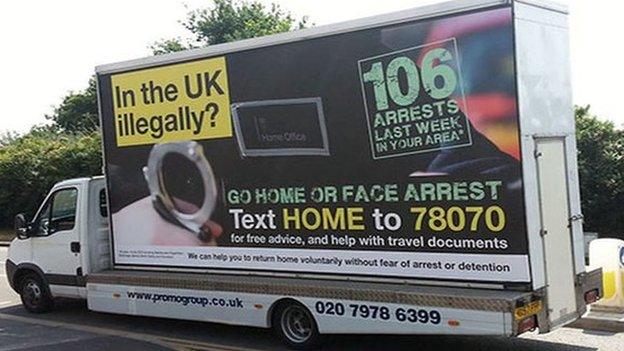
- Published11 March 2018
